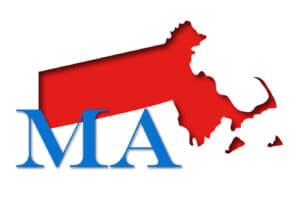Story Updated May 15, 2014: The Senate Banking Committee on Thursday, May 15 endorsed the Housing Finance Reform and Taxpayer Protection Act of 2013 (S. 1217), by a bipartisan vote of 13-9. The legislation would overhaul the nation’s housing finance system by ultimately winding down Fannie Mae and Freddie Mac and implementing measure to encourage more affordable housing development. While the bill received a bipartisan majority, it is unlikely that the bill would receive enough support to advance the bill to the House floor.
Click here to read the press release
Senate Banking Committee Chairman Tim Johnson (D-SD) and Ranking Member Mike Crapo (R-ID), have released a discussion draft of a bipartisan housing finance reform bill, S. 1217. The Johnson-Crapo measure winds down and eliminates Fannie Mae and Freddie Mac and establishes a modernized, streamlined and accountable Federal Mortgage Insurance Corporation (FMIC), modeled in part after the FDIC. New entities will be regulated by FMIC in the same manner banks are regulated by the FDIC.
The measure also includes mechanisms to encourage affordable housing development, such as promoting and expanding a mortgage loan credit market, growing the number of approved multifamily guarantors, and the establishment of a pilot program within FMIC’s Office of Multifamily to improve secondary market access for smaller properties. More detailed information about specific multifamily proposals within the bipartisan draft can be found below.
Future System
FMIC will approve multifamily guarantors to both guarantee the first loss position on multifamily securities and issue securities for which they provide guarantees. The bipartisan draft provides that the successful mechanisms currently offered by the enterprises, the DUS and Series K products, can be used by approved multifamily guarantors in the new system. Approved multifamily guarantors will have 10% capital requirements standing before the public guarantee.
Continuing to Serve Working Families
Each enterprise and approved multifamily guarantor must ensure that 60% of the rental housing units financed are affordable to low-income families (families with incomes at or below 80% of Area Median Income) at origination. FMIC may suspend or adjust this requirement in the event of economic distress or adverse market conditions.
Improving Access for Smaller Properties
Smaller properties – those with less than 50 units – serve families in urban, suburban, and particularly rural areas. As important a source of housing as these properties are, they often face barriers accessing the secondary market. The bipartisan draft establishes a pilot program in FMIC’s Office of Multifamily Housing to test and assess methods or products designed to increase secondary mortgage market access for small multifamily properties.
Office of Multifamily Housing
Recognizing the unique nature of the multifamily housing market, the bipartisan draft creates an Office of Multifamily Housing within FMIC to provide special focus on multifamily housing.
The development of this proposal is the culmination of months of work by members of the Senate Banking Committee after several in-depth hearings exploring elements essential to Housing Finance reform.
Click here to read a summary of the discussion draft.
Click here to read the legislative text.

